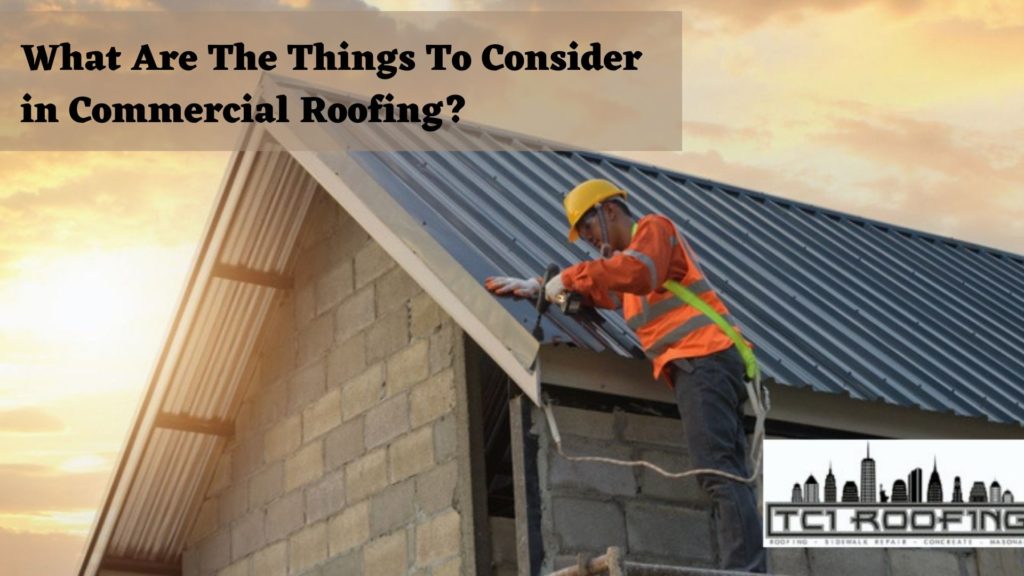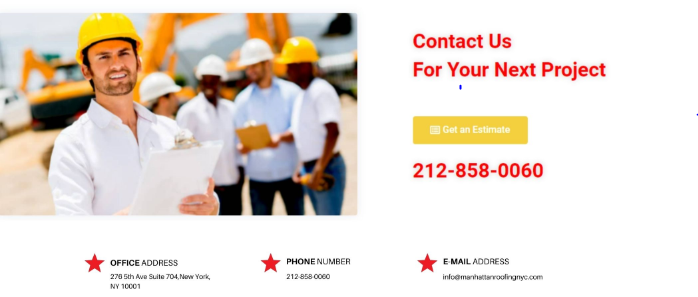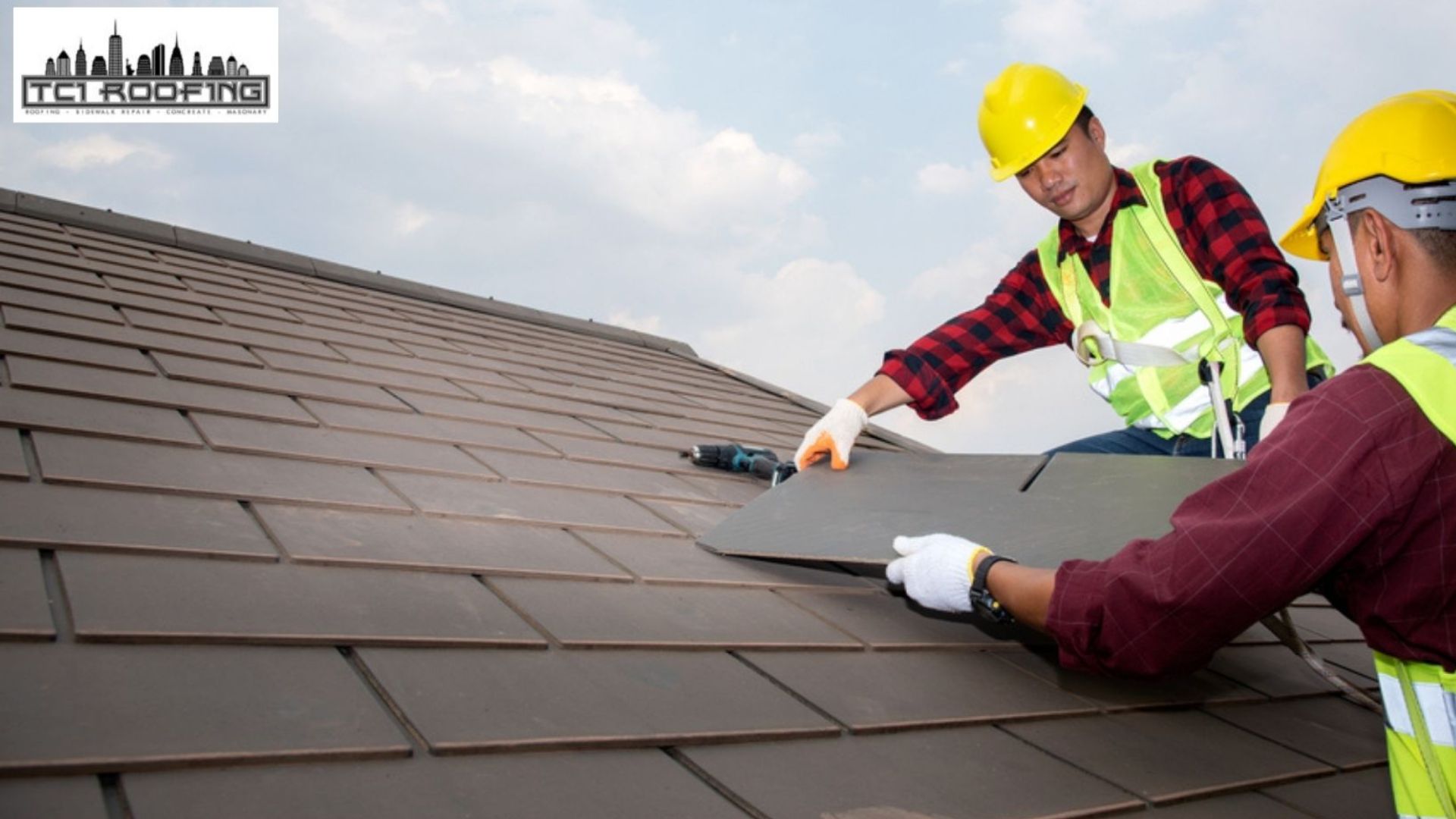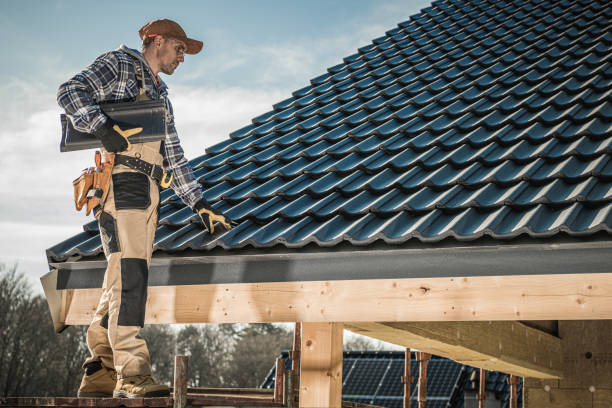Any commercial structure needs to have good roofing. Your building’s roof offers outstanding structural support and shielding from the weather. When choosing one, for building owners or property owners, you must be aware that not all commercial roofing systems are created equal. The size, kind, flexibility, energy savings, and materials utilized in the design of each roofing system determine how each method differs with a reliable solution.
There are many things to consider when doing a commercial roofing system, such as the type of roof, the climate, and the building itself. The type of roof is necessary because it will affect the lifespan of the roof and the overall appearance. The weather is also essential because it can affect the roof’s durability and how well it will withstand weathering. Finally, the building itself is also important because it can affect the type of roofing used and the roof’s location. All of these factors should be considered when installing a commercial roof.
What is Commercial Roofing?
Commercial roofing is the process and materials used to cover and protect commercial buildings from the elements. Commercial roofing systems are designed to withstand heavy traffic and weather conditions, making them an ideal choice for many businesses for re-roofing. There are many different types of commercial roofing systems available, each with its own advantages and disadvantages. The type of roof you choose will depend on the needs of your business, the climate in which you live, and the size and shape of your building.
Additionally, by lowering consumption, commercial roofing helps to conserve energy. Pre-finished steel is one of the materials used in the production of commercial roofing. It is weatherproof and comes with a 30-year copper and zinc warranty. Save money with solar roofing if your company is environmentally conscious and aims for cost effective solutions. Flat roofing is a common choice for commercial buildings. Various flat roofing alternatives include TPO membrane, EPDM, and PVC. All of these flat roofing systems can be installed affordably and are long-lasting. If properly maintained, commercial roofing can easily last 30 years or longer.
What Are The Types of Commercial Roofing Systems?
Metal Roofing: One of the most established types of commercial roofing is metal roofing.
Although other materials like aluminum or tin can also be utilized, corrugated galvanized steel is typically used in metal roofing systems. Metal roofing can be put directly over an existing roof because it is lightweight. In addition, a coating for waterproofing, rust prevention, and UV protection can be applied after installing a metal roofing system.
Shingle Roofing: Although shingles are primarily associated with residences and residential roofs, they are frequently employed in steep-slope commercial roofing applications. Several materials can be used to make shingles, including wood, slate, metal, plastic, ceramic, and composites like asphalt. Asphalt and architectural shingles are the two primary varieties.
- Asphalt shingles are the most popular and economical roofing material available today. On average, these roofing systems are covered by 15–30-year guarantees.
- Architectural shingles are thicker, multi-layered, and more durable to increase a building’s resistance to the elements. It frequently includes “lifetime” warranties.
Built-Up Roofing: In the US, built-up roofing systems have been operating for over a century. These roofing materials are called “tar and gravel” roofs. Built-up systems are put in place by applying successive layers of asphalt or tar and supporting materials directly to the roof. The number of installed layers (or plies) is up to you. Stone or gravel makes up the top layer of a built-up roofing system. Installing a conventional built-up roofing system typically ranges in price from $5.50 to $8.50 per square foot* for an ordinary business roof. Depending on the materials you pick, this price range may fluctuate.
What Are The Common Types of Commercial Roofs?
There are four common types of commercial roofs: flat, membrane, metal, and composite.
Flat Roofs: Flat roofs are horizontal or nearly horizontal surfaces that slope slightly to allow for drainage. They’re the most commonly used type of roofing on commercial buildings. There are several flat roofs, including built-up roofs, single-ply roofs, spray foam roofs, and metal roofing systems.
Membrane Roofs: Membrane roofs are made up of multiple layers of laminated synthetic materials. They’re also known as “rubber roofing.” Single-ply membrane roofs are the most common type of membrane roof. There are three primary types of single-ply roofs: ethylene propylene diene monomer (EPDM) roofs, thermoplastic polyolefin (TPO) roofs, and PVC roofs.
Metal Roofing: Metal roofs are made up of metal panels attached to the roof deck with screws or welds. They’re a popular choice for commercial buildings because they’re durable and long-lasting. There are several metal roofs, including standing seam roofs, corrugated metal roof, and interlocking metal shingle roofs.
Composite Roofing: Composite roofs are made of multiple layers of materials that are laminated. They can be made from various materials, including wood, slate, metal, plastic, ceramic, and asphalt. Asphalt is the most common type of composite roofing material. Composite roofs are also known as “laminate roofs.”
What Are The Factors Affecting Roofing Choices?
It has become clear that different businesses utilize and prefer different roofing materials. Therefore, when considering the characteristics of particular materials, an engineer is likely to favor whatever is most significant.
The “perfect” use cases for some of the materials in the above list demonstrate that various materials can be employed to address diverse demands. But unfortunately, this means that specific materials can frequently monopolize an industry because their needs typically don’t change. The defects of specific materials can be compared to the same thing. Due to a certain quality a material possesses, businesses may be deterred from using it or unable to do so.
Design is a factor that is yet unaddressed in this text. The aesthetic merits of a chosen roofing material are considered in architecture. Finding a balance between practicality and aesthetic appeal roof membranes might be crucial in some situations.
Why Should You Check Reviews When Choosing Commercial Roofing Contractors?
There are many factors to be considered when choosing a commercial roofing contractor. You need to consider the size of the job, the type of roof, the location and climate, your budget, and the contractor’s experience and reputation.
It’s essential to do your research and read reviews before hiring a commercial roofing contractor. Reviews can give you valuable insights into a contractor’s work ethic, communication style, and quality of work.
It’s also essential to ensure that the contractor you choose is licensed and insured. A license indicates that the contractor has met the state’s requirements for training and experience. Insurance protects you from financial responsibility if the contractor damages your property or hurts you while working on your roof.
When you’re ready to hire a commercial roofing contractor, get multiple bids and choose the best contractor for roof installation needs.
How Much Does Commercial Roofing Installation Cost?
The cost of commercial roofing installation depends on the size and type of roof, the location and climate, the contractor’s experience and reputation, and your budget. The average cost of commercial roofing installation is $2.50-$3.50 per square foot.
Why Should I Hire a Reputable Commercial Roofing Repair Near Me?
When you work with a reputable contractor, you can be confident that the project will get done right the first time, ultimately saving you time and money. The last thing you want is for them to use your job as a teaching tool. A business could run into trouble with roof repairs if it chooses the wrong contractor. A contractor’s mere possession of a roofing license does not guarantee they know all roof kinds. Check references before selecting a roofer to learn more about their performance on similar projects.
Hiring a reputed, local commercial roofing contractor will assure you that you have chosen the correct person for the job. Then, the only thing left is to sit back and wait for the roofer to arrive and install your new roof after signing the contract.
How Much Does it Cost to Hire Commercial Roofing Services in Manhattan?
It costs $2,500-$3,500 to hire commercial roofing services in Manhattan. The cost depends on the size and type of roof, the location and climate, the contractor’s experience and reputation, and your budget. Additionally, commercial roofing installation costs $2.50–$3.50 per square foot.
Conclusion
In conclusion, there are many things to consider when choosing commercial roofing, such as the type of roof, the climate, the contractor’s experience, your budget, and the reviews. Doing your research before hiring a contractor is essential to avoid any issues down the road. Also, get multiple bids and choose the best contractor for your needs. TCI Manhattan Roofing is one of the reputable commercial contractors in New York that you can rely on. Check the website today for a free estimate for your featured projects.





